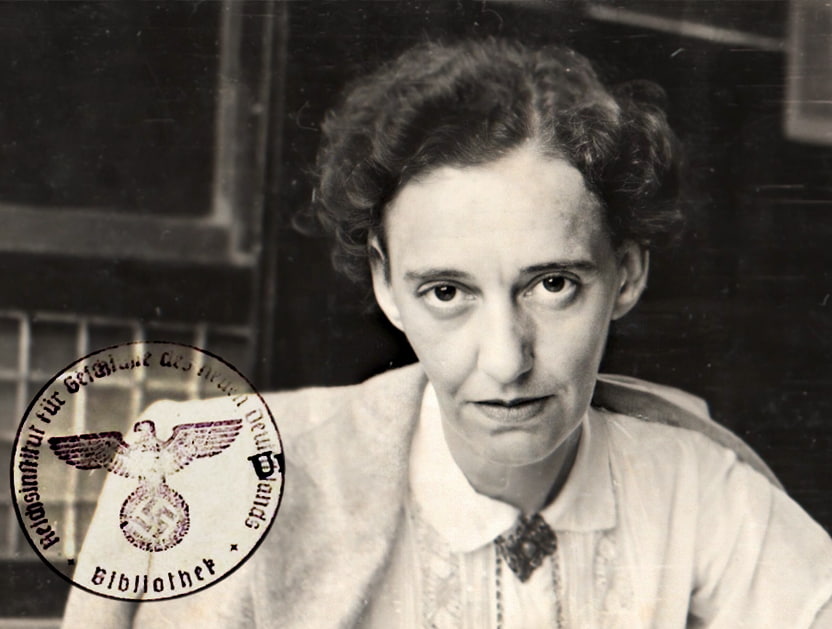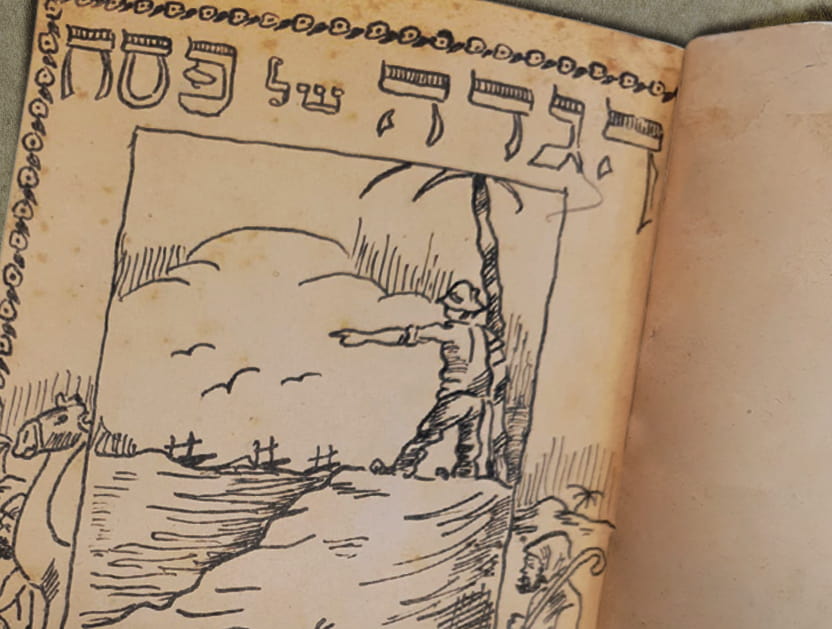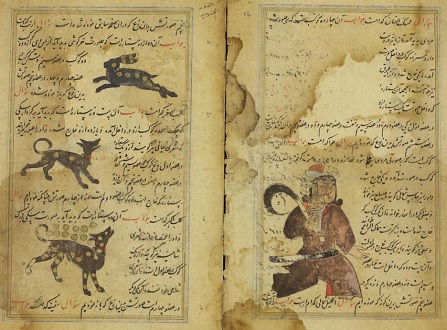Autobiographical interviews of Jews born in German speaking countries ("Yekkes") - 50/60 years after their immigration to Israel
להגדלת הטקסט להקטנת הטקסטTova, originally Gisela Stern was born on 06/10/1924 in Vienna. She attended a private girls' “Gymnasium” in Vienna. Emigration with her parents in 1938 to Slovakia. Illegal stay in Hungary, half a year stay in Romania and agricultural hachshara. After her return to Hungary, she started a training as seamstress and fashion designer. After the War with her mother in a DP-camp in Germany, in summer 1947 emigration to Palestine. Worked as tailor in a fashion store, then for 25 years handicrafts teacher in a primary school. Since 1976 she and her husband David have lived in Argentina where David is the headmaster of a Jewish school. ; Tova Bilitzer's childhood in Vienna: She considers her childhood as ordinary. Her family lived in district XIII (Hietzing) in Vienna. Her school was in Wenzgasse. Her mother came from Slovakia, her father emigrated from Hungary before World War I. Tova Bilitzer's father served in the army and was captured by the Russians. Her mother worked in a department store. After the father's captivity, the family ran a manufacture for children's wear. T.B. has one elder sister. All her good friends were Jews. She went to an expensive private school for girls only. One third of the students were Jews. Her parents were religious. The Jewish teachers in the “Gymnasium” were not removed until after Anschluss. One day after the Jewish students returned to school after a Jewish holiday, Jews and Christians were required to seat separately. The Jewish children accepted it without asking questions. T.B. was never insulted by her Christian friends. She ended the “Gymnasium” after the junior grades. ; Tova Bilitzer's first years of emigration (in Europe): Towards the end of the year 1938, she was deported to Slovakia with her parents. After the annexation of Slovakia, the family stayed in Hungary illegally. They wanted to immigrate to Palestine with Aliya Bet but the departure of their ship could not be organized. Her father found a good job in Hungary. T.B. trained as a seamstress and fashion designer and studied Hebrew and English but did not learn Hungarian. Her father died in Hungary after surgery. From Hungary she moved to Romania for 6 six months, returned to Hungary and after the Holocaust she went to Germany. In 1947, she emigrated to Palestine via Marseille. She was a member of a Zionist association in Vienna. Her father was always interested in Israel, but her mother was afraid to settle in Israel. She however was more afraid to return to Austria because of the Russians. ; The Zionist association helped them get passports which guaranteed protection by Sweden or Switzerland. After a friend from the Zionist movement helped her get a forged birth certificate, T.B. could obtain a work permit. She was warned about arrests of illegal immigrants in Hungary by Zionist friends and hid in an empty apartment with other girls. After arousing the suspicion of a caretaker, she lived with an old lady. Soon, Hungary was annexed by Russia. The Russians took away private properties. The Zionist movement arranged hachshara training in Romania after the annexation of Hungary. T.B. stayed there for half a year until she heard of her father's sickness. She went to see her parents every day before the Russians arrived. The family was thrown out of their apartment by the Russians. Tova Bilitzer's sister emigrated to Palestine with Youth Aliya in 1938, but she was too young then. She returned to Germany with her mother after the War. They stayed in a DP camp. ; Tova Bilitzer's first years together with her husband and his life: She got to know her future husband in Hungary, he was the leader of a Zionist group. The couple arranged their wedding in the camp. Then they lived in Munich for a year. The wedding was arranged on the meadows outside of the camp and beautiful despite the bad conditions: Girls arranged a chair with flowers, the Bilitzers spent their honeymoon in Bad Reichenhall. They had to share their (rather damaged) apartment in Munich with other people. D. Bilitzer had a certificate for Palestine as a leader in the Zionist movement. Tova Bilitzer got herself a certificate from another person and changed her name. They departed from Marseille in July/August 1947 and arrived in Haifa. Tova Bilitzer first remembers the hot climate in Palestine. She immediately went to see her sister who lived in a moshav. D. Bilitzer wanted to live in Jerusalem because of the university. D. Bilitzer had obtained his PhD. in Hungary in philosophy and Semitic languages. He had to serve in the army during the War of Independence. Later he worked as a teacher. ; Tova Bilitzer's language situation in Israel and her family: She thinks that radio broadcasts from Northern Germany are not easy to understand. She is a friend of Gerda Hoffer who is also interviewed for this project. She speaks German with her when they are alone, but there are only few occasions to speak German. Tova Bilitzer could not learn Hebrew well in Europe. She prefers learning languages by listening and repeating. Soon after the arrival in Palestine she found a job in a fashion store as a tailor. There she practiced Hebrew by speaking with her female colleagues. She speaks Hebrew with her husband because they have no other common language. They considered the War of Independence not as interference against their plans, but as a war for themselves. They endured poverty in Jerusalem during the first years. Their first daughter was born at the end of the war; she later gave them four grandchildren. The Bilitzers also have a son. They raised their children in Hebrew because of their Zionist attitude and because of the lack of another common language. D. Bilitzer was not able to support his mother in law as a poor teacher, she had to live in a moshav with her other daughter. Despite the poverty, the couple felt satisfied because of their idealism. Tova Bilitzer started to read Hebrew newspapers after her mother's death. Discussion about the change of pedagogical esteem for multilingual education. They got a bigger apartment after five years in Jerusalem, when their son was born. ; Tova Bilitzer stopped working as a tailor after her daughter's birth. She also learned Spanish when the family moved to Argentina in 1976. About her children's careers and military service. Her children do not know German at all. Tova Bilitzer hardly reads German books. She does not notice any changes in the language of her interviewer. - She saw the marching in of the Germans to Hungary when she was on a trip in the mountains with Zionist girls. - She put her children in a kindergarten because she soon started to work again after their birth. ; Tova Bilitzer's relationship with Europe and her antisemitic experience: She likes to visit Europe as a tourist. Once she went from Hungary, Germany and Austria. She felt sad about the destruction and the Russian occupation then. She found her former school changed into barracks. She thinks that Austrian antisemitism is worse than German, but she knows antisemitic violence only by hearsay. She states that the Viennese Jewish youths did not really understand the threatening events. There were not many Jews in Hietzing, many turned out to be Jews only after 1938. Her parents told her to be proud of her Jewishness. She did not have problems in the “Volksschule” though she was the only Jew in her class there. Tova Bilitzer's school and language situation in Vienna: She states that a main condition for social acceptance in the “Volksschule” was knowing German with the right Viennese dialect. She thinks that the dialect might not be very widespread among the Jews. She saw that hardly any Jews in Vienna spoke Yiddish, not even those emigrated from Eastern Europe. Analysis of the intolerance against the Jews from Eastern Europe. She herself did not give up her dislike for Yiddish until her stay in Germany. ; Statements on her own cultural identity and on ethnic conflicts: She loved reading during her youth and has not forgotten the famous German ballads. About German theatre productions in Israel and theatre visits during her childhood. Her children know where she is from, but her daughter refused to use a textbook on German language bought by her mother. - About her experience with collecting and preparing mushrooms. About Viennese specialties she remembers. - She would not treat a decent Arab differently than somebody of her own ethnic group. She does not feel as a “Yekke”. Analysis of the different mentalities of German and Austrian Jews. There is a mixed population in her own quarter, but she does not know many Austrian Jews. Her quarter became a Jewish settlement after the war of 1967. T.B. thinks she knows hardly anything about music, but she likes listening to classical or Israeli music. Discussion about present anti-foreign feelings in Europe. - T.B. liked to play in Schoenbrunn castle during her childhood. ; Tova Bilitzer's career, general statements on education and the history of German emigration: For 25 years, she worked as a handicrafts teacher at a primary school in Israel. She started to work again in Argentina, but stopped after half a year. States that the like or dislike for a subject at school depends on the teacher. She remembers certain Jewish teachers in the junior classes of her “Gymnasium”. T.B. asks the interviewers about reasons why people leave the church in Austria. She thinks that in Israel, open statements on political attitudes are possible, but that politics is a “dirty” business. Her sister became the leader of an association of German immigrants. Austrian immigrants are a minority in comparison to Germans and get less international attention. Remarks on the German wave of emigration immediately after Hitler's assumption of power compared to the fact that Austrian Jews underestimated the danger until the annexation. T.B. thinks that the danger could not be overlooked. - She never used her agricultural knowledge in Israel. Analysis of the organization of agriculture in Israel.
| כותר |
Autobiographical interviews of Jews born in German speaking countries ("Yekkes") - 50/60 years after their immigration to Israel. |
|---|---|
| כותרים נוספים |
יהודים ילידי ארצות דוברות גרמנית - 50 שנה לאחר גירושם ועלייתם לארץ |
| יוצרים נוספים |
Stern, Gisela Luckart, Andrea OHD (interviewer) Mauser, Peter OHD (interviewer) ביליטצר, טובה OHD (מרואיין) ביליטצר, דוד OHD (מרואיין) Bilitzer, David OHD (interviewee) Stern, Gisela OHD (interviewee) שטרן, גיזלה OHD (מרואיין) המדור לתיעוד בעל פה של מכון המחקר ליהדות זמננו ע"ש אברהם הרמן באוניברסיטה העברית בירושלים (בעלים נוכחיים) |
| שנה |
1998 |
| הערות |
Includes short biography, questionnaire and topics of the interview. Audio slightly longer than transcript המדור לתיעוד בעל פה של מכון המחקר ליהדות זמננו ע"ש אברהם הרמן באוניברסיטה העברית בירושלים (234)142 |
| מקום נוסף |
30. November 1998. |
| היקף החומר |
47 p. Playing time: 2:22:17 |
| שפה |
גרמנית |
| קרדיטים |
המדור לתיעוד בעל פה של מכון המחקר ליהדות זמננו ע"ש אברהם הרמן באוניברסיטה העברית בירושלים |
| מספר מערכת |
990044255330205171 |
בכל שימוש יש לציין את מקור הפריט בנוסח הבא:
המדור לתיעוד בעל פה של מכון המחקר ליהדות זמננו ע"ש אברהם הרמן באוניברסיטה העברית בירושלים
תנאי השימוש:
למחקר, לימוד והוראה
מותר להעתיק את הפריט ולהשתמש בו למטרות של לימוד עצמי, הוראה ומחקר בלבד.
מותר להעתיק את הפריט ולהשתמש בו גם למטרות הוראה ומחקר מסחריות.
חובה להעניק קרדיט ליוצר/ים בכל שימוש בפריט.
אסור לפגוע בכבודו או בשמו של היוצר באמצעות סילוף או שינוי של היצירה.
אין צורך לפנות לספרייה הלאומית לקבלת רשות שימוש למטרות לימוד עצמי הוראה ומחקר.
שימוש שאינו ללימוד עצמי, הוראה ומחקר, מותנה בקבלת הרשאה מבעל זכויות היוצרים בפריט ו/או מבעל האוסף. לא נדרש אישור נוסף מהספרייה הלאומית.
ניתן לפנות לספרייה הלאומית לקבלת פרטי הקשר של בעל זכויות היוצרים/בעל האוסף: טופס בקשה לבירור זכויות יוצרים
מידע נוסף:
הפריט כפוף לזכויות יוצרים ו/או לתנאי הסכם.
תנאי השימוש נקבעו בהסכם עליו חתמה הספרייה הלאומית.
אם לדעתך נפלה טעות בנתונים המוצגים לעיל או שקיים חשש להפרת זכות יוצרים בפריט, אנא פנה/י אלינו באמצעות טופס בקשה לבירור זכויות יוצרים
תצוגת MARC
יודעים עוד על הפריט? זיהיתם טעות?

 כניסה עם גוגל
כניסה עם גוגל
 כניסה עם פייסבוק
כניסה עם פייסבוק




